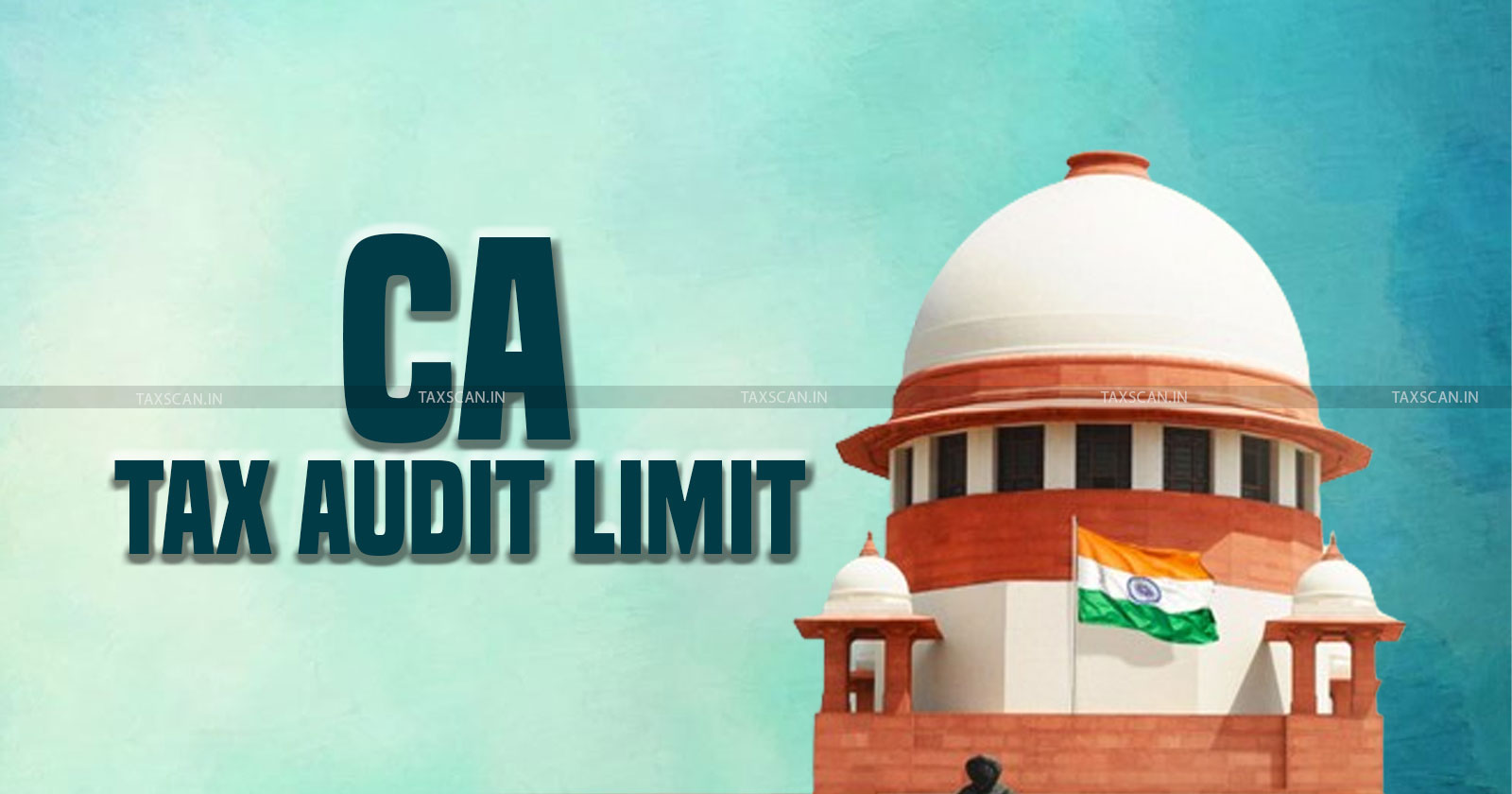Limitation of Number of Tax Audits by CAs in a Year: Impact Analysis of Latest Supreme Court Decision upholding ICAI Rule
The Supreme Court recently upheld the Tax Audit Assignment Limit on CAs. Know the Impact and Implications.

Supreme Court – ICAI Rule – Chartered Accountant – Tax Audits – ICAI news – ICAI – CA audit limit – taxscan
Supreme Court – ICAI Rule – Chartered Accountant – Tax Audits – ICAI news – ICAI – CA audit limit – taxscan
On May 17, 2024, the Supreme Court upheld a regulation by the Institute of Chartered Accountants of India ( ICAI ), capping the number of tax audits a Chartered Accountant ( CA ) can undertake to 60 per financial year.
The ruling by Justices BV Nagarathna and Augustine George Masih, sides with the Institute’s attempts to bring more quality over quantity of work in the profession of Chartered Accountancy.
The Ruling
The Supreme Court affirmed that paragraph 6.0 of Chapter VI of the ICAI Council Guidelines, issued on August 8, 2008, and its subsequent amendments, are reasonable restrictions under Article 19(1)(g) of the Indian Constitution. This Article guarantees citizens the right to practice any profession, trade, or business.
The Impact
The regulation will be effective from April 1, 2024. Disciplinary proceedings initiated against CAs for breaching the limit prior to this date have been annulled. This decision was based on the doctrine of legal uncertainty, acknowledging that clarity was needed for such an important professional guideline.
The Apex Court upheld the authority of the Institute to adjust the audit limit if future circumstances warrant it. This provision allows for potential scalability in response to the profession's evolving demands.
The tax audit regime under Section 44AB of the Income-tax Act, 1961, mandates audits for businesses and professionals exceeding specific income thresholds. Established on April 1, 1985, this requirement aimed to curb tax evasion and fraudulent practices by ensuring a thorough examination of financial records.
Initially, only companies and cooperative societies needed audits under the Companies Act, 1956, and the Co-operative Societies Act, 1912. With Section 44AB, the scope broadened, necessitating a substantial increase in the number of CAs qualified to handle these audits.
In 1988, ICAI introduced a cap on the number of tax audit assignments per CA to maintain audit quality and mitigate professional misconduct.
This cap was extended to partners within CA firms. Despite facing multiple legal challenges and varied High Court judgments, the guideline was intended to preserve the standards and credibility of the profession of Chartered Accountancy.
The petitioner had argued that the restriction infringed on the fundamental right to practice a profession enshrined in Article 19(1)(g) and the right to equality as in Article 14 of the Constitution of India. It was contended that ICAI overstepped its authority by imposing such limits.
Representing the Institute of Chartered Accountants of India, Senior Advocate Arvind P. Datar highlighted the historical context of compulsory audits under the Income-tax Act, 1961. He argued for the importance of quality over quantity in audit practices, asserting that the cap ensures comprehensive and reliable audits, which is essential for maintaining public trust and professional integrity.
Enroll Now: Live Online Course on GST On Real Estate – A Labyrinth by CA Aanchal Kapoor today!
Impact on Chartered Accountants and the Profession
The cap aims to improve the quality of audits. Each audit requires meticulous attention, and an excessive number of assignments could compromise thoroughness and accuracy.
Limiting assignments reinforces ethical practices and reduces the risk of professional misconduct. It ensures that CAs can allocate adequate time and resources to each audit, upholding the profession's standards, especially while the number of misconduct orders related to audit lapses have spiked recently.
The ruling may impact the market dynamics within the profession. Smaller firms and individual practitioners could benefit as larger firms, previously handling numerous audits, adjust to the new cap. This could democratize opportunities within the industry, allowing for a more equitable distribution of audit assignments.
The Supreme Court recognized the importance of the role of ICAI in maintaining professional standards. The ruling empowers ICAI to continue evolving the guidelines in response to changing industry needs, ensuring the profession adapts to future challenges while retaining its core values.
Other Remarks
Whether acquisition of an additional qualification of Chartered Financial Analyst (CFA) by a Chartered Accountant could be termed as professional misconduct under Section 22 of the 1949 Act?
Holding in the negative, the Apex Court found that enhancement of knowledge, training and ability should be encouraged in an emerging economy and to term the same as professional misconduct would be violative of Articles 14 and 19(1)(g).
Get your Hands on Goods and Services Tax related Books for Reference at Shopscan: Visit Shopscan.in
Conclusion
The Supreme Court's decision to uphold ICAI's tax audit assignment limit marks a significant step in regulating the CA profession in India. By affirming the regulation's validity and providing flexibility for future adjustments, the ruling ensures a balance between professional freedom and the necessity for high-quality audit practices. This landmark judgment not only strengthens the credibility of the profession but also paves the way for sustainable and ethical practices in the years to come.
Support our journalism by subscribing to Taxscan premium. Follow us on Telegram for quick updates


